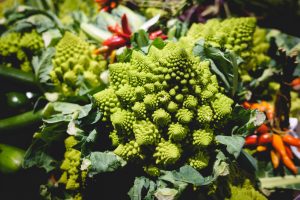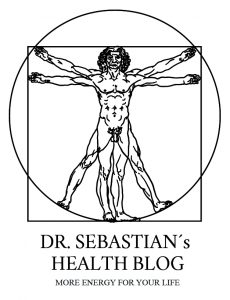[toc]
What is a healthy diet?
Apart from breast milk, which is only for babies, no single food contains all the essential nutrients the body needs to stay fit and healthy. That´s why your diet should contain a variety of different foods that include a wide range of nutrients.
“For a healthy nutrition, variety and unprocessed foods are key!”
The key for a healthy diet is to eat unprocessed food. In order to do so you need to eat fresh fruit and vegetables regularly and – instead of eating out – you need to cook for yourself regularly.
Most of what we eat should come from the two biggest food groups.
- Fruit and especially vegetables
- Starchy carbohydrates – try to include more whole grain cereals into your diet!
Other important foods for a healthy nutrition are:
- Beans and pulses
- Fish (at least twice a week)
- Eggs, and other proteins
- Meat – only eat meat twice a week or less frequently!
Fruit and veg
Fruit and especially vegetable are key for a healthy nutrition. They contain:
Of course, fruits and veg contain much more substances, for example loads of water and sugar. Generally, vegetables contain less sugar and more dietary fibre then fruits. These are the main reasons, why vegetables should be the most important part of your diet.
“Stay healthy by eating loads of fruit and especially vegetables”
Oils and spreads
We are generally eating too much fat. High-fat foods like fast food, French fries, potato chips, ice-cream, butter, peanut butter, butter, and margarine all contain way too much and mainly saturated fatty acids. However, most of the fat in our diet should come from unsaturated fat. Oils are generally high in calories and should only be eaten in small amounts anyway.
If you are preparing your salad you should use (a drizzle of) linseed oil, hemp oil, olive oil, rapeseed oil, walnut oil, or pumpkin seed oil. These oils are all rich in unsaturated fatty acids.
“Unsaturated fatty acids reduce the risk of heart attack” – DGE 2010
Convenience foods
Convenience foods or tertiary processed foods, are commercially prepared foods that optimise ease of consumption and often have a very long shelf life. There are various convenience foods on the market, like candies, chips, cookies, dried soup and pasta dishes, fast foods, frozen pizza, juices, soft drinks and ready-made meals.
The issues with convenience foods are also various: they may contain excess sugar or artificial sweeteners, excess salt, high fat, partially hydrogenated oils, food preservatives and food additives. They might contain chemicals and they mostly contain very few fibre.
“Avoiding processed foods, prepared meals, and fast foods
can greatly improve your health!”
In most developed countries, people eat way too much salt. About 80% of consumed salt comes from industry-prepared food. According to Wikipedia, a single serving of many convenience foods contains a significant portion of the recommended daily allowance of sodium.
Partially hydrogenated oils are the primary dietary source for trans fats. Trans fats raise your bad (LDL) cholesterol levels and lower your good (HDL) cholesterol levels. Eating trans fat increases your risk of developing heart disease, stroke and type-2-diabetes.
Avoiding processed foods, prepared meals, and fast foods can greatly improve your health, because you are automatically having a more balanced and healthy diet, especially if you follow the recommendations for a healthy nutrition stated above!
Lack of micronutrients, even with a balanced and healthy nutrition
Eating a healthy, balanced diet should provide almost all of the nutrients that you need to stay healthy. However, in some circumstances you may need to take supplements to make sure you get enough of a particular vitamin or mineral. This accounts especially for:
- Vitamin D
- Vitamin B12 (if you are a vegan)
- Selenium



Leave A Comment